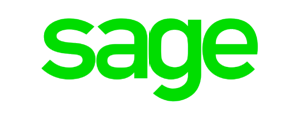Often complex and always strictly regulated, your practice knows how to do payroll well and managing it for multiple clients is a skill you’ve perfected.
But it can be painful. Changes to HMRC legislation, IR35 compliance and Real Time Information obligations add to your workload.
Keeping on top of the ever-changing status of your clients’ employees is also part of the challenge: sick pay, maternity leave and new contracts all have to be accounted for.
Payroll service providers are under pressure to get it right.
According to research by accountants UHY Hacker Young, HMRC collected £737.3m from investigations into companies over payroll tax mistakes. It seems some haven’t been reading their payroll for dummies book.
As payroll experts, you need to focus on providing an exceptional service to ensure your clients don’t appear in these statistics.
And this means using every trick in the book to reduce hours spent on non-billable work, such as managing their regular payments, so that your staff can do their job brilliantly.
A simple way to achieve this is to introduce a Direct Debit payment scheme for your clients, fully managed by a professional bureau who will do everything for you.
Switching to this automated system will transform how you collect payments, influencing and improving many parts of your business.
Here we explore why this straightforward solution can have such a dramatic effect on your accountancy practice.
Got a Cashflow Crisis?

As payroll service providers, you’re in the business of managing PAYE schemes efficiently so that tax obligations are met, employees are paid correctly and client cashflow is optimised.
But what about your own money matters?
The success of your business relies on prompt payment by those you’re working so hard to look after. Predictable cashflow, accurate forecasting and a streamlined system are all crucial.
But if you’re relying on outdated methods such as Standing Orders and cheques from clients for their regular payments, this success is probably being compromised.
When your new employees are learning how to do payroll, you’ll be stressing to them that HMRC won’t tolerate non-payment. Your business should have the same attitude.
Giving credit shouldn’t be an option: there is an alternative.
Learning How to Do Payroll with Less Admin Time
If you’re meticulously tracking your team’s time, you’ll know your practice’s billable vs non-billable hours ratio.
It could be looking a little unbalanced: too much time spent chasing late payments, too many hours painstakingly double-keying data into antiquated systems, too many late nights figuring out how to ease your cashflow challenges.
You can easily give these headaches the heave-ho by accepting Direct Debit for your clients’ regular PAYE service payments.
Direct Debit is an automated system which allows you to take payments directly from your customers’ account on the date of your choosing. Its flexibility allows you to alter this timing, along with the amount and frequency, to suit your business’ needs.
By outsourcing the scheme to a Direct Debit bureau, your own accounts team will enjoy a whole new way of working which will boost their morale and efficiency.

Thanks to the benefits of Direct Debit, they’ll be relieved of many administrative burdens which currently eat into your billable hours percentage:
- Less time spent chasing debtors via numerous emails and phone calls that could ultimately prove fruitless. As Direct Debit payments are predictable, they’ll arrive on time with no fuss and no surprises.
- Less time manually entering data into several different systems, reducing the chances of human error and the need to continually export spreadsheets. With Direct Debit, your accounts software will be effortlessly streamlined with your bureau’s system to make repetitive reconciliation a thing of the past. You can also integrate with APIs and platforms such as Xero and Sage for even more powerful digitalisation to further reduce admin tasks.
- Less paperwork to manage and store, removing the dull job of filing and organising. Clients can sign up to Direct Debit online, as well as over the phone or via a traditional paper mandate if they prefer, to fully digitalise your databases.
- Fewer awkward client conversations as any issues with an unpaid or cancelled Direct Debit are flagged instantly via a full reporting system. Your accounts team will be armed with all the information they need to professionally and efficiently solve the problem.
- More time for staff to undertake training to supercharge customer service and progress their own careers. This is especially important when keeping up-to-speed with legislation such as IR35 and advising your clients how to avoid falling foul of strict tax laws.
- More time to focus on your clients’ individual needs, allowing your business to build better relationships and provide an even more impressive service. For instance, you can add value by making sure all new client employees are on the system quickly and don’t have to use an emergency tax code which could unfairly penalise them.
Using a Direct Debit bureau to manage your clients’ payments while you focus on how to do payroll will gift your business time. Time that can be used to boost productivity and your own bottom line.
Incomparable Customer Loyalty
When keeping up with the competition, you have to cover all bases.
Clients want you to care about the work you do for them and for it to be as cost-effective as possible. They expect outstanding personal service: an increasingly important part of this is being able to use the most convenient way to pay you.
Thanks to technology, you can offer them a personalised, hard-working payment service that will help you to outshine other payroll service providers. If you’re not offering Direct Debit, you can bet your bottom dollar that some potential clients will overlook you to find one that does.

Direct Debit has a powerful effect on customer loyalty. If you can give them the most convenient, secure and flexible way to pay for their monthly PAYE service, as well as amazing service, they’re more likely to stick with you.
You’re helping them to tick off a job from their to-do list: they know that you’ll be paid automatically with no time-consuming input from them.
Direct Debit doesn’t give them the option of having a memory lapse when it comes to paying on time. They’ll be spared that uncomfortable reminder phone call that could put up barriers between you and them
Instead, if they’re confronted by cashflow challenges, they can speak to you about clearing arrears by spreading costs over a longer period of time, or even by taking a short payment holiday.
Its simplicity and adaptability reduce the possibility of client conflict, smoothing relationships and transforming your clients into brand advocates. Splitting their costs into a monthly amount, rather than issuing one large annual invoice, also means that any necessary fee increases will appear more manageable.
They’re also protected by the Direct Debit Guarantee which offers safeguards absent from other payment methods such as Standing Orders and cheques. This ensures that if an error is made, they are entitled to a full refund: another tick on the customer satisfaction list.
Direct Debit gives your reputation that extra polish. By partnering with a Direct Debit bureau, you can be professional, efficient and helpful, all while ensuring your own cashflow is never compromised and both your staff and clients are happy.












